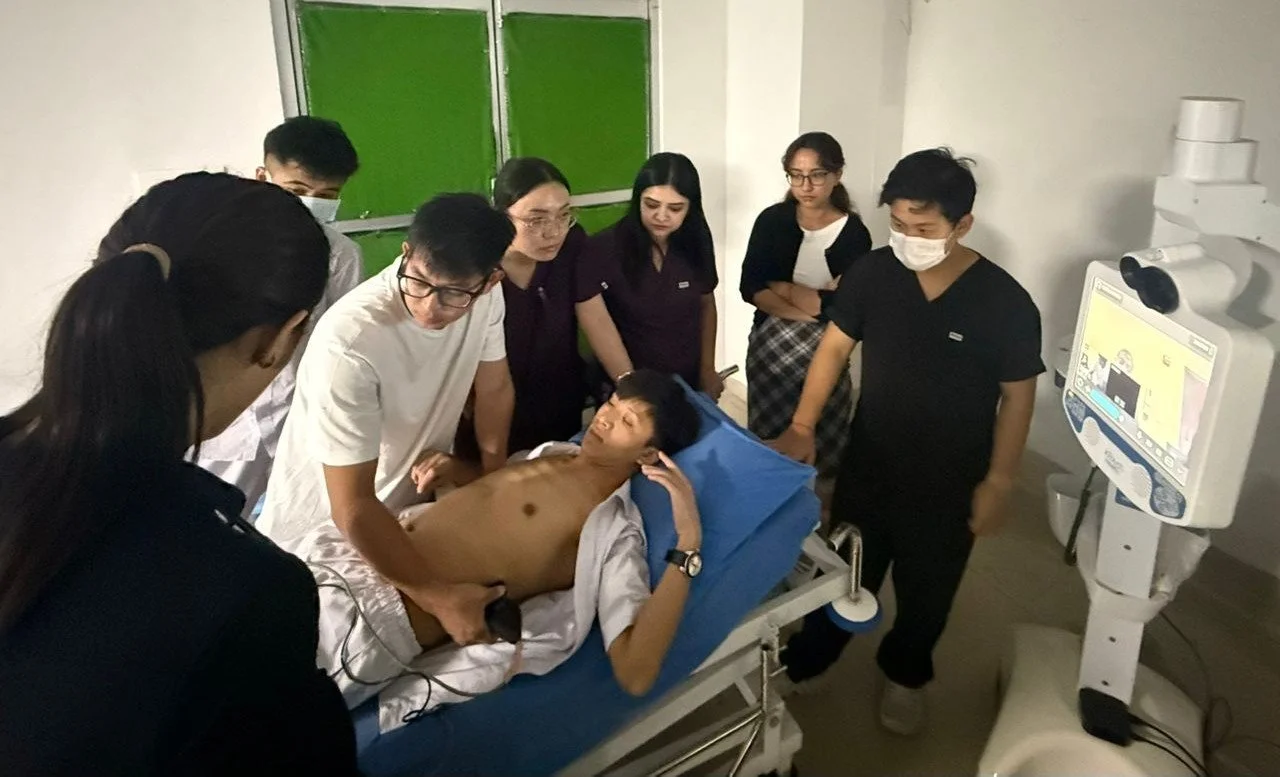Closing the training gap in global health: Inside WTI’s Clinical Curricula
The second cohort of trainees in Bhutan learn how to integrate ultrasound into their daily practice.
Across low resource regions, clinicians often face complex cases without access to the training or tools to manage them. Advanced education is rarely available locally, and limited travel options make it difficult for providers to gain the expertise needed to address long standing community health challenges.
World Telehealth Initiative (WTI) is changing that reality by bringing advanced medical education to them through a set of structured, hands-on training courses delivered by experts through telehealth. These Clinical Curriculums provide practical, skills based instruction directly to clinicians where they work, helping them grow in confidence while caring for their communities.
Each course follows a comprehensive learning pathway, covering vital topics within a requested field and gives participants the chance to hone new skills during live, guided sessions with topic experts. This new offering by WTI goes deeper than our usual telehealth lecture series, and gives clinicians the opportunity to truly master a new skillset through a certification course.
From subclinical scans to skilled: WTI’s ultrasound course
The first curriculum that WTI launched was our hands on ultrasound training course, which has quickly proven to be deeply impactful and highly requested. Over six to eight weeks, clinicians learn to perform and interpret ultrasound scans and integrate this vital diagnostic tool into daily practice. Emergency Medicine instructors from Orlando Health share the curriculum that they teach to incoming residents in Florida, which is then tailored to each low-resource hospital’s needs. The specialists support learners in real time as they refine technique and build the confidence to use ultrasound independently. Participants improved ultrasound image quality by 50%, moving from subclinical to clinically interpretable scans. They also reported a 72% jump in confidence performing ultrasound independently.
The momentum is visible across sites. After completing the course in Ethiopia, Kenya, and Bhutan, teams shared how the training and technology enables them to make more timely and accurate diagnoses to improve health outcomes. In Bhutan, the impact was so clear that the hospital requested a second cohort to train ten more clinicians. Training in Bhutan is currently underway, and new groups in Guatemala and Togo are preparing to begin, adding to a growing network of learners who are using their new skills daily to impact countless patients.
Next in Clinical Curriculum: Preparing ICU Teams for Success in Kenya
World Telehealth Initiative’s program in action at St. Clare’s Hospital in Kenya
With the incredible success of this education model, WTI is soon launching another course that will cover ICU operation and critical care best practices. The curriculum is starting at St. Clare’s Hospital in Kenya. The course will prepare clinicians to manage critically ill patients as the hospital opens its new intensive care unit. Participants will complete the same rigorous curriculum used for ICU providers in California, led via telehealth by critical care specialists from Cottage Health. The goal is to equip the team with the knowledge, practice, and skills to successfully care for the sickest patients in their region, and the confidence to pass on this knowledge to peers.
Looking Ahead: Building a Stronger Global Health Workforce
WTI is redefining what medical education can look like in low-resource settings. These courses bring medical education and advanced training directly to highly dedicated providers in low-resource settings. They build local capability, strengthen medical teams, and support better patient care long after each course ends. With ongoing mentorship afterwards, clinicians can continue to advance their skills and knowledge, ask questions as they apply the skills, and deepen their expertise in the field. As demand grows for this kind of support, WTI is equipping more and more providers with the tools to deliver better care and build healthier communities worldwide.


